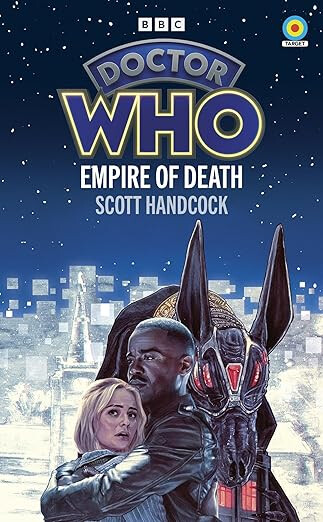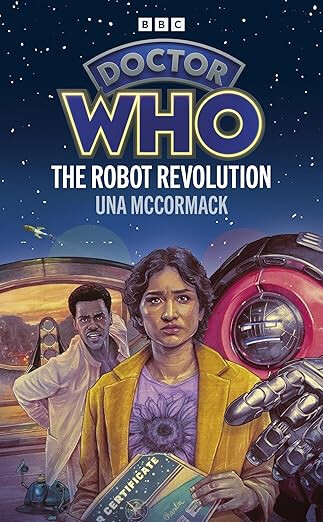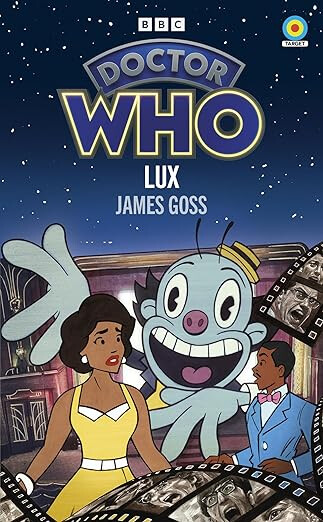I’ve actually read very few Targets. Of Season 1, I’ve read Unearthly Child, Daleks, Aztecs and Sensorites.
The TV story of Marco Polo is completely missing and was seven episodes long. I’ve listened to audio soundtrack of the TV episodes with linking narration and remember enjoying it, but it’s been ages.
4 Likes
I think the TV story is held in higher esteem than perhaps it deseves because it is missing and therefore people have put it on kind of a pedestal, but it is good and though I’ve not read the novel, I have read Lucarotti’s novelisation of The Massacre and I thought he wrote it very well
5 Likes
7 episodes? Wow, the book is tiny! (relatively speaking as novels go) 
7 Likes
Seven 25-minute episodes, though. And that’s not even the longest serial. There’s one later on that’s 12 episodes in length, and it was novelised in two parts.
6 Likes
Can’t speak for the novelisation, but the reconstruction of the TV episodes I saw was very good! Some of the First Doctor’s best imo.
5 Likes
The Daleks was also seven episodes. In the Hartnell era especially, there was no set number of of episodes like there would be later. So you had wildly varying story-lengths. Season 1 breaks down like this:
Unearthly Child - 4 parts
Daleks - 7 parts
Edge of Destruction - 2 parts
Marco Polo - 7 parts
Keys of Marinus - 6 parts
Aztecs - 4 parts
Sensorites - 6 parts
Reign of Terror - 6 parts
Eventually, it would settle out to be mostly four-part stories with the occasional six-parter.
5 Likes
Wow, very interesting!
And very different than here in the US, where a “2 parter” would have been a big deal!
And as @MrColdStream mentions, with a 25 min limit, 6 episodes would be 2 1/2 hours, so you could really “cover a lot” in that time!
6 Likes
You’ve got to remember that Classic Who was always serialized. Especially at the start, each story flowed into the next.
6 Likes
That’s about right. Usually, though, they didn’t have enough plot to cover all six episodes, which is why the longer serials tend to have a lot of repeated capture-escape-recapture sequences to cover the runtime. These days, such stories can feel a bit bloated if you watch them in one sitting, but I bet it wasn’t felt too much back in the day, when you watched one episode a week. And it’s different in prose as well, of course.
6 Likes
Yep, back in the day when you didn’t “binge watch” a show… thus week to week, a person could kind of “forget” some/any repetition and “be ready” for a bit more even! 
10 Likes
That’s precisely it! And that’s the charm of Doctor Who, especially from the good old days 
6 Likes
Well even those got novelisations more recently. Some stories even have two
7 Likes
Well indeed but they’re all a bit ‘more’ than novelisations in the way the Target ones worked.
5 Likes
So, just to bring these back on people’s radar, the UK releases of the next batch of Fifteenth Doctor target novels come out on July 10. In the US, it looks like the Kindle and eAudiobook versions drop then, no idea when the physical paperback editions drop. The titles and narrators are:
Empire of Death by Scott Handcock, read by Susan Twist
The Robot Revolution by Una McCormack, read by Varada Sethu
Lux by James Goss, read by Dan Starkey
The Well by Gareth L. Powell, read by Caoilfhionn Dunne
12 Likes
So I just finished “Marco Polo” yesterday and I have now moved on to “Doctor Who and the Keys of Marinus”.
I liked Marco Polo, it was fun, although a bit “terrestrial” for my tastes. But all in all was very good! 
I am really liking “Marinus” so far with the Acid Sea and the Glass shores!
Should be very Fun! 
13 Likes
The 1st doctor has a lot of historicals with no aliens at all. (apart from the Doctor and co) I really like the few I’ve seen, but I can understand wanting more sci-fi stuff 
8 Likes
Yeah, it seems that way…
Not bad because the settings are usually from interesting time periods, so that’s okay…
But yeah, I do prefer more sci-fi! 
8 Likes
As @ProfessorSummerfield said, the Hartnell era had what fandom calls “pure historicals”, stories set in Earth’s past where the only sci-fi elements are the TARDIS and crew. This was because the original brief of the show was to educate as well as entertain. It took a good few years for the show to find its groove and become a more monster-of-the-week show (sometimes to its detriment). By the Troughton era, pure historicals were phased out and with a couple exceptions, any stories set in Earth’s past had a sci-fi element and were often what are termed “celebrity historicals” which feature a famous person or event from history (this is especially true in the modern era with appearances of Dickens, Shakespeare, Churchill and Van Gogh, just to name a few).
9 Likes
Yes, Marco Polo is one of several pure historicals from that era. Doctor Who was originally conceived as an educational show for kids, so the historicals were designed to educate on various historical periods. They weren’t as popular as the sci-fi stories, which is why they were dropped at the start of the Second Doctor era. From then on, all historical stories (bar a couple of exceptions) included sci-fi elements. And this trend continues to this day.
9 Likes
Also, while fans love Marco Polo for its ambition and scope, it was seven episodes long, and currently missing. The next historical, The Aztecs, is only four episodes, exists, and considered to be one of the best stories of the Hartnell era.
5 Likes



